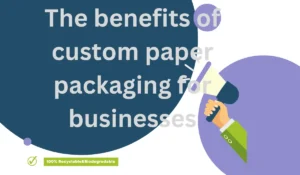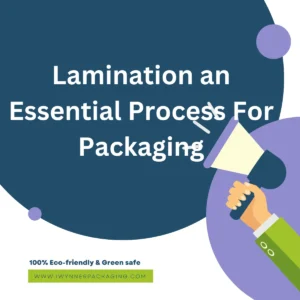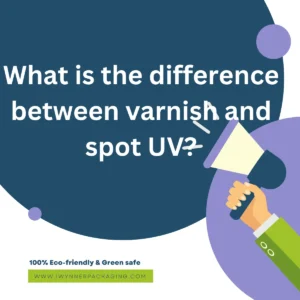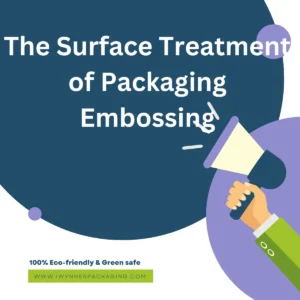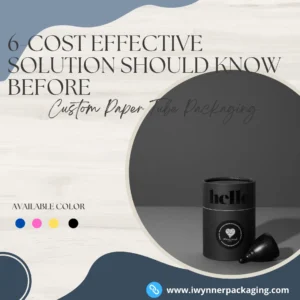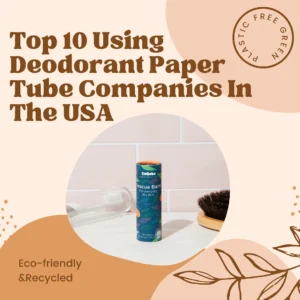What industry certifications do packaging manufacturers need?
Certifications in the packaging industry are extremely complex and diverse, especially in the food industry, and they exist to verify that manufacturers are complying with the highest possible standards in all areas of packaging manufacturing.
This blog post below tells you how packaging manufacturers can get certified and why they need it.
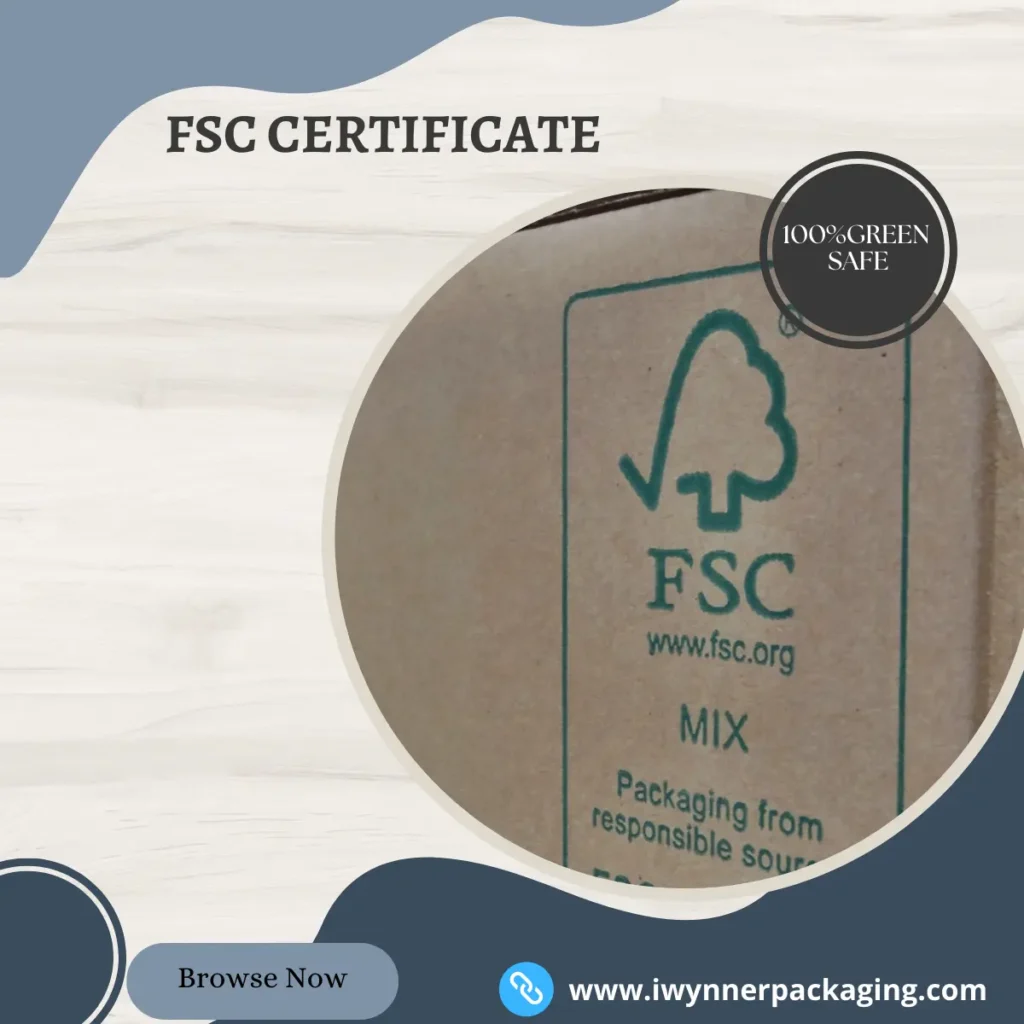
Why is certification important for a packaging company?
Because there is a growing community of conscious consumers who are asking companies to take more specific actions to reduce their environmental impact. Fifty percent of global consumers interviewed by an ITC Cosmetics researchers in the third quarter of 2019 highlighted how businesses ought to put more effort into protecting the environment. Buyers are now more aware of marine plastic pollution and other issues associated with traditional packaging. Consumers are increasingly choosing which brands to buy based on how sustainable the product is and what product packaging looks like. Sustainable sourcing and production are now part of creating packaging consumers love. Similar to certified products, retail and product packaging can be certified so that they can carry an environmental label.
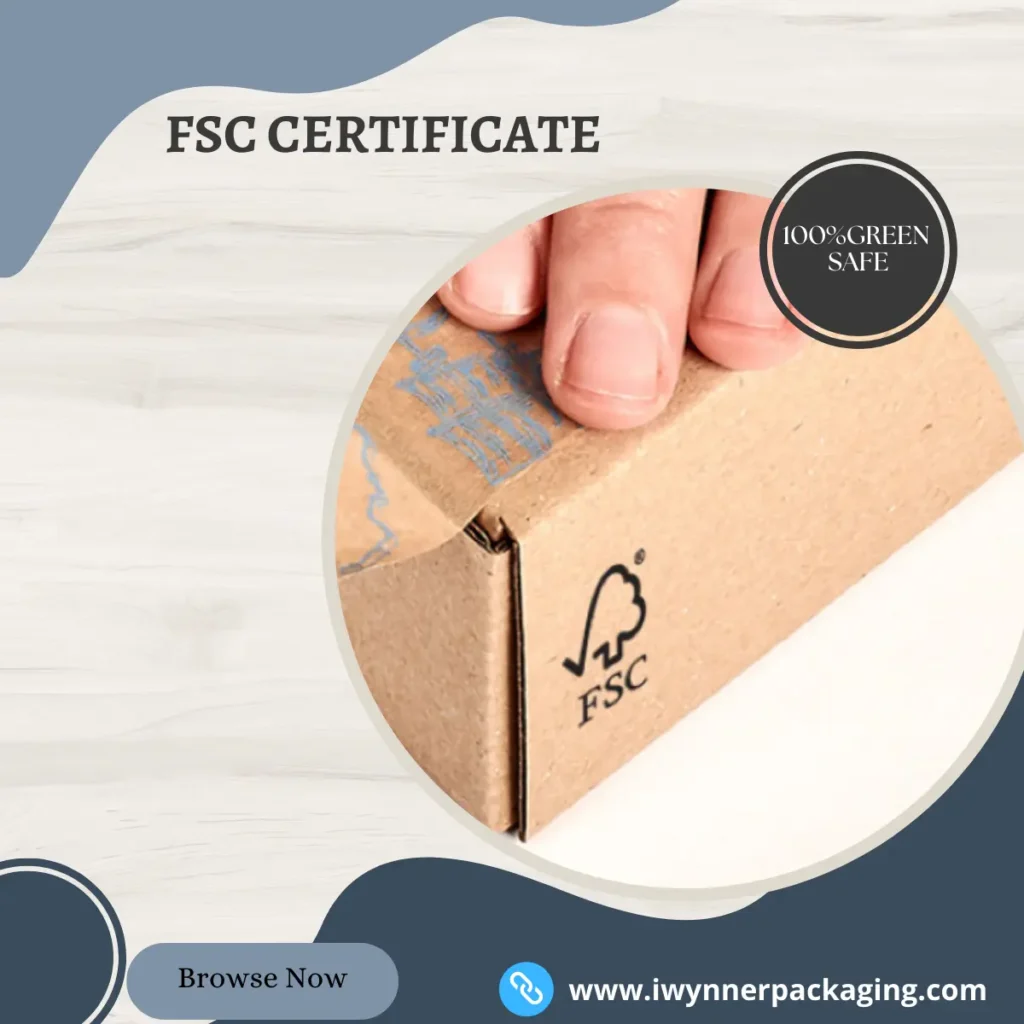
For the purpose of obtaining certifications, what are the main means and courses of action?
Each certification body is different and will have a different process. Basically, the process will have a similar format. The packaging manufacturer decides which certification it wants to obtain The manufacturer will then purchase the certification body’s standard requirements and research them. The manufacturer will compare the standards and procedures they use with those required by the organization If the manufacturer feels they need help, The manufacturer may employ a professional to help them establish their standards and practices, then compensate a registered third-party auditor once commissioned to audit their facility. The auditor will then identify any allegations of non-compliance and recommend corrective measures. Typically The certifications usually need to be renewed annually or every few years (reviewed and paid for).
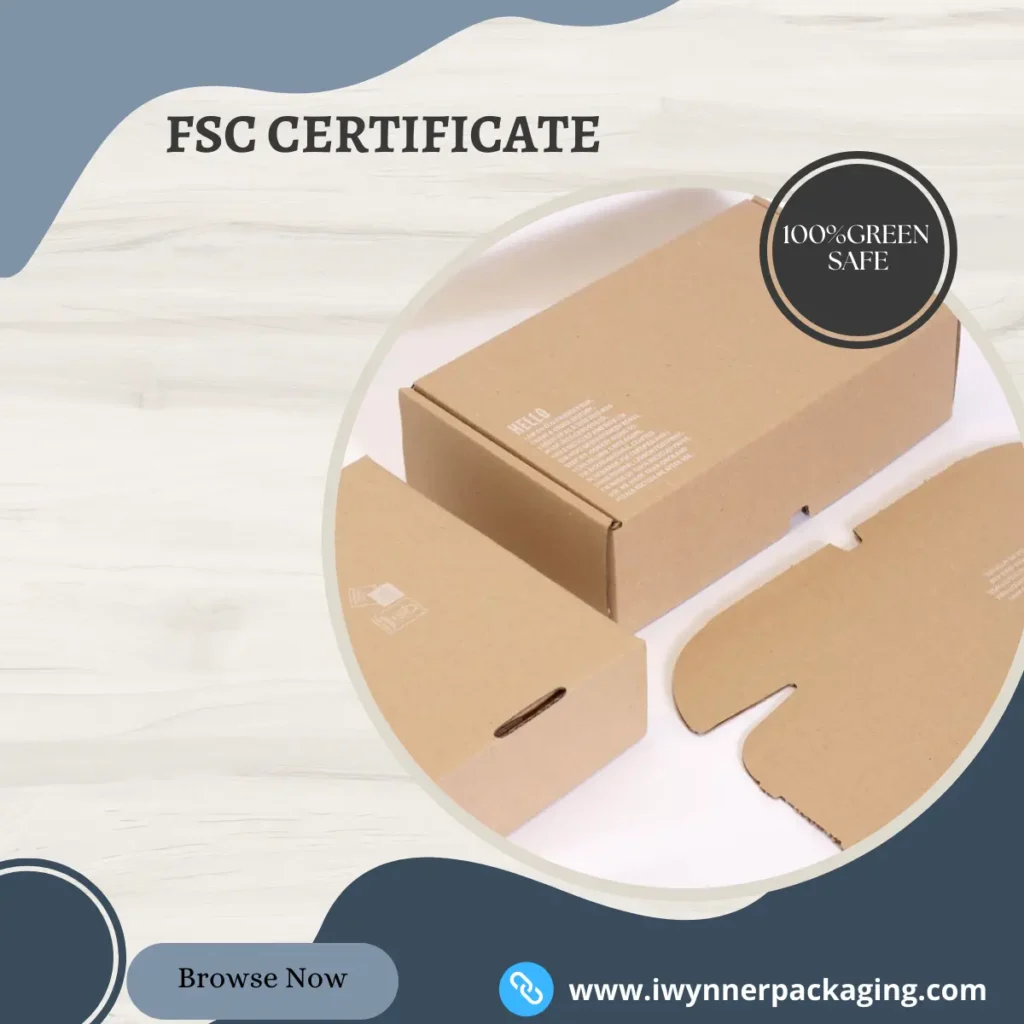
Benefits of Packaging Certification
Choosing a service provider that offers certified packaging substrates is beneficial to your business in many ways.
- Risk Management
All certifications offered here include a supply chain verification component. This means that the third party has confirmed responsible business practices for the entire supply chain.
This reduces business risks, such as legal and reputational risks of unethical supply chains. Certification against the use of hazardous materials also reduces risks associated with public and environmental health.
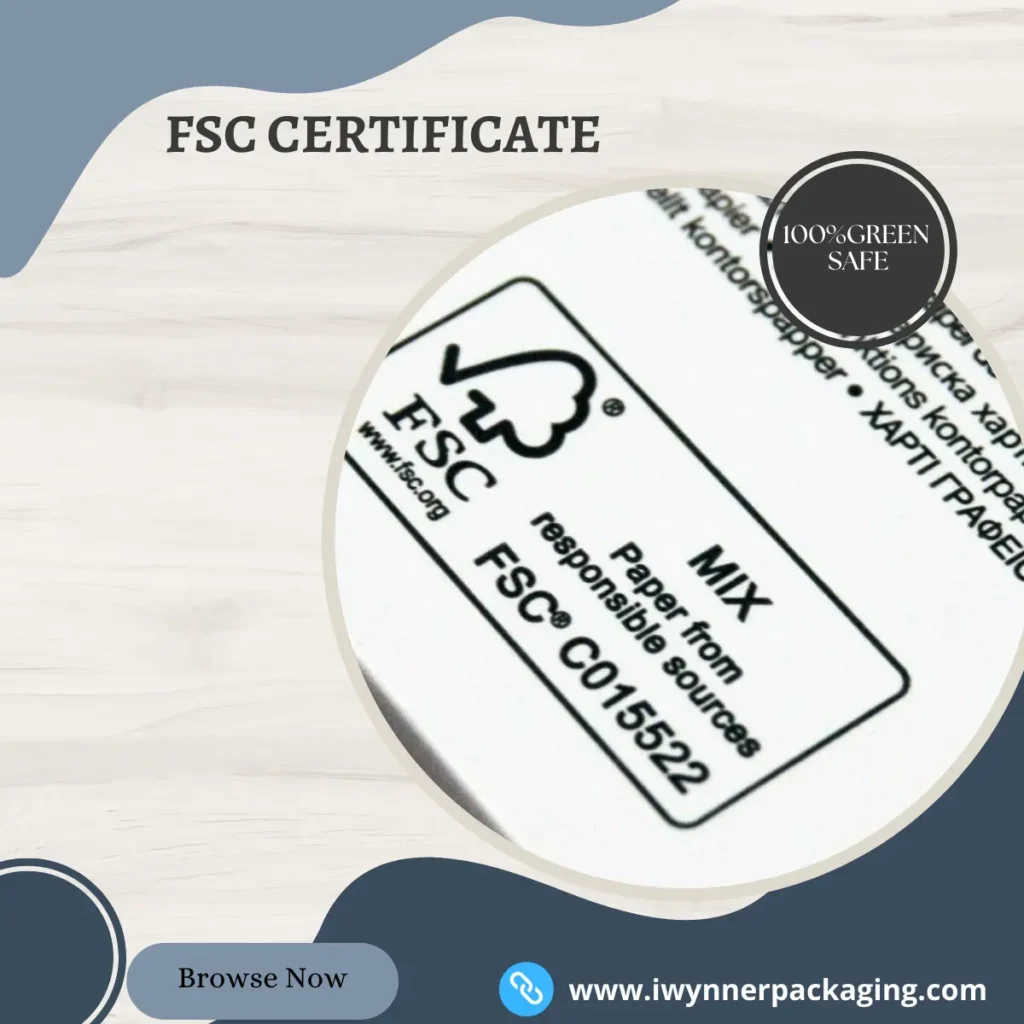
- Enhancing brand image
Integrating credible certification into packaging reflects well on the brand in the eyes of the customer. Third-party certifications confirm that packaging materials are sustainably sourced and sourced, demonstrating to consumers that the company values sustainability.
In addition, these certifications require written records, which means that your business and/or the certifying body collects a great deal of data about your company’s sustainability efforts. Reporting this information to buyers can increase your company’s transparency and improve your brand reputation.
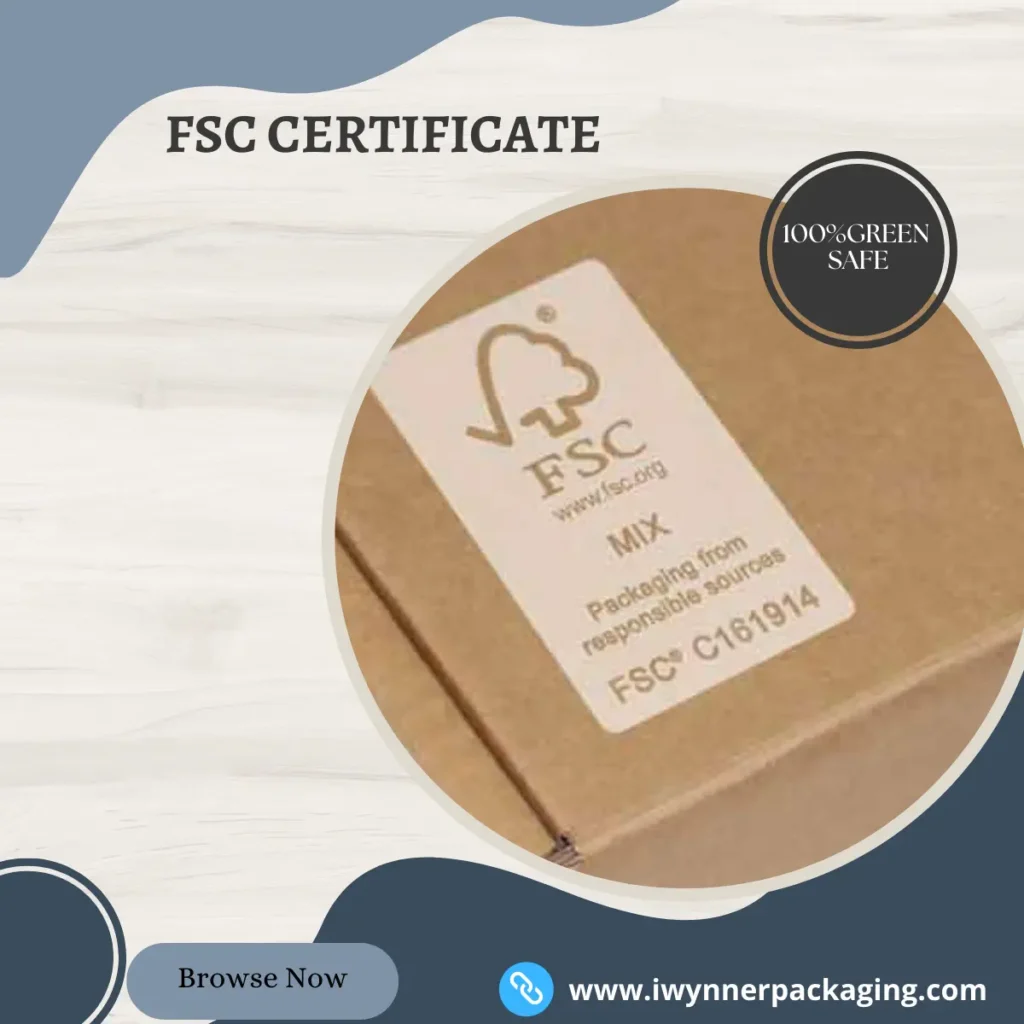
- Higher profitability On the one hand
the environmental management required by certification bodies involves optimizing resource use, such as water and energy use. This practice may reduce the cost of packaging materials. On the other hand, certified packaging has an advantage in the marketplace. Lowering both your packaging and product prices will usually result in greater profits for your product.
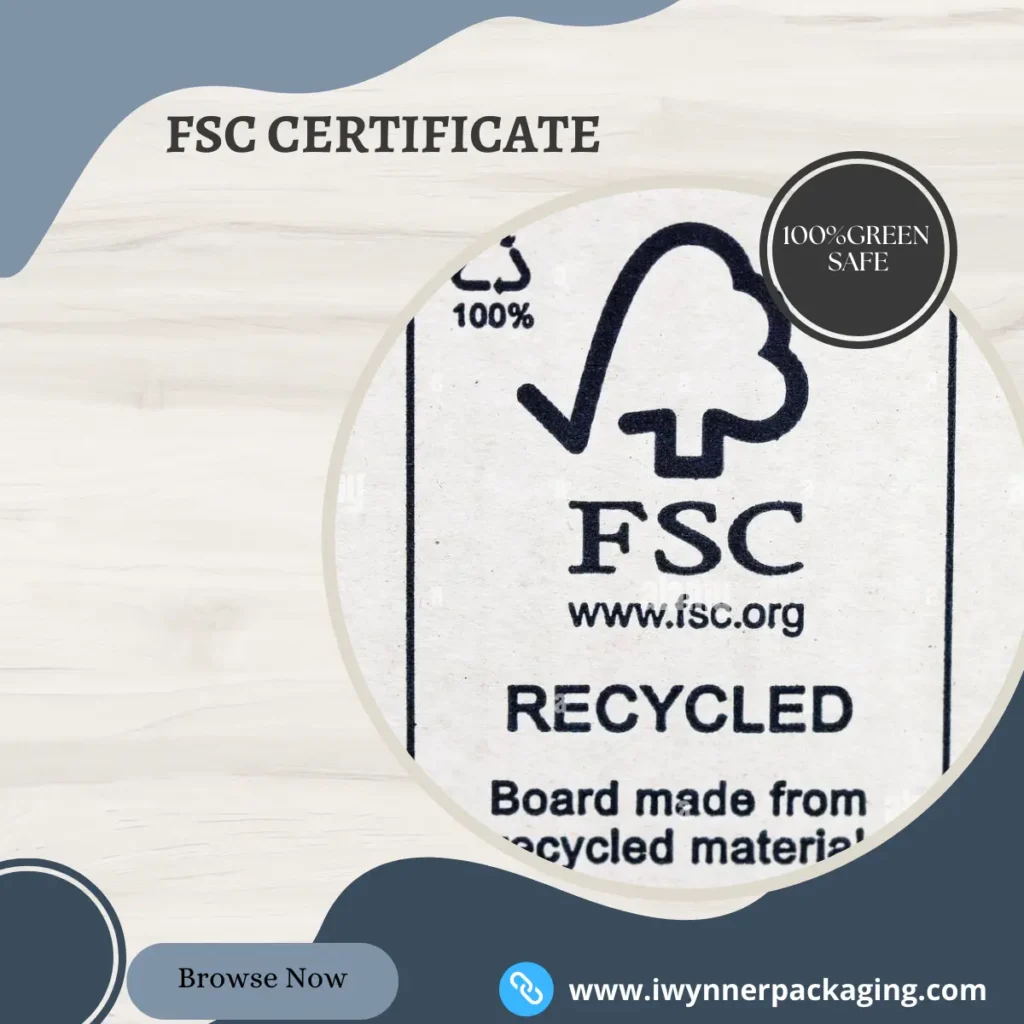
Where do these demands for high standards come from?
The demand for high standards that these certification organizations aspire to provide depends on the interests of
- Companies purchasing the packaging
- Companies that purchase products for resale (retailers)
- Consumers
Next is the company that buys the product – the retailer. For example retailers such as Walmart or large grocery chains have very strict requirements for all of their suppliers. Let’s say you produce grains and your buyers need to know that your packaging is sustainable and that you need the SFI or FSC symbol on your packaging.
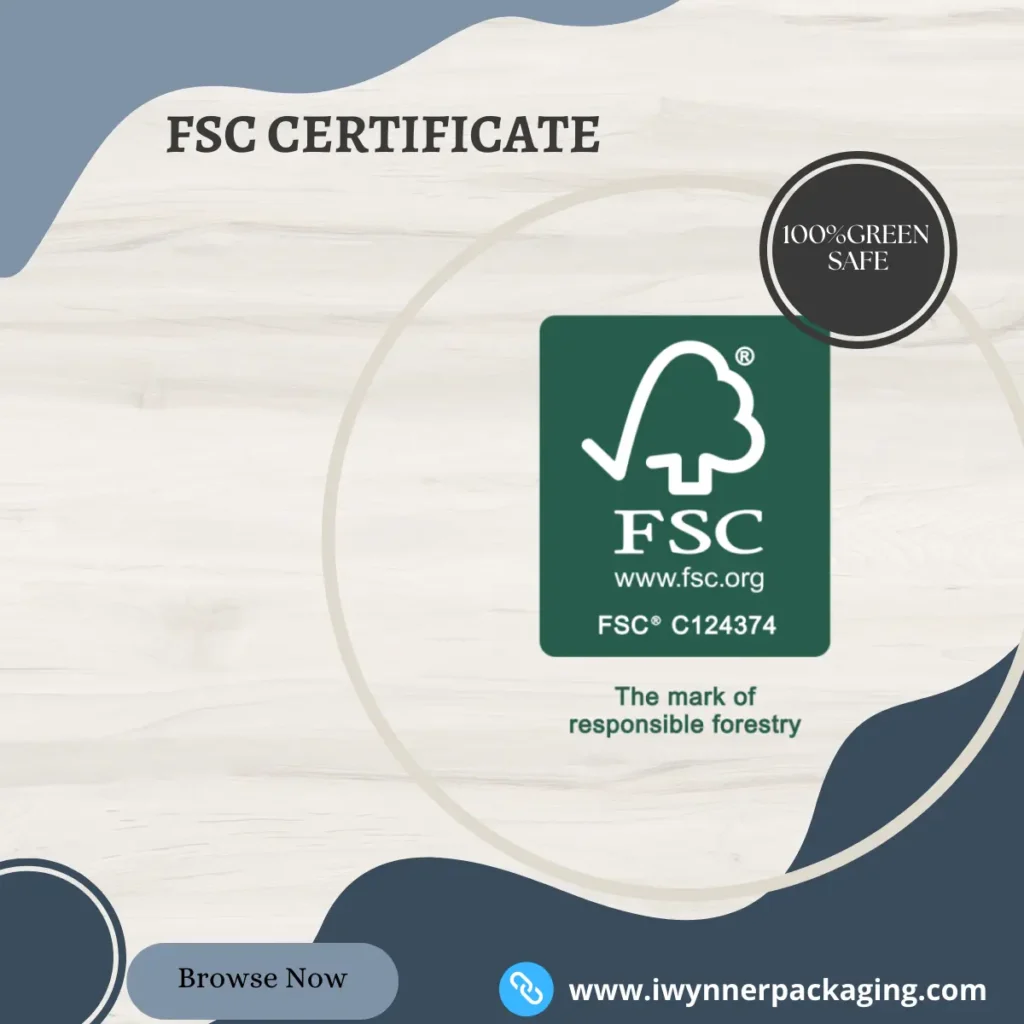
Why would a packaging manufacturer pay someone to meddle in their business?
Just to get some piece of paper, which, in many cases, can cost a very significant sum.
The most common sustainable packaging certifications in packaging
FSC (Forest Stewardship Certification)
A designated certification body uses ten guiding principles to determine whether to certify a forest. Foresters must manage the area to protect and benefit workers, communities and local biodiversity while maintaining profitability.
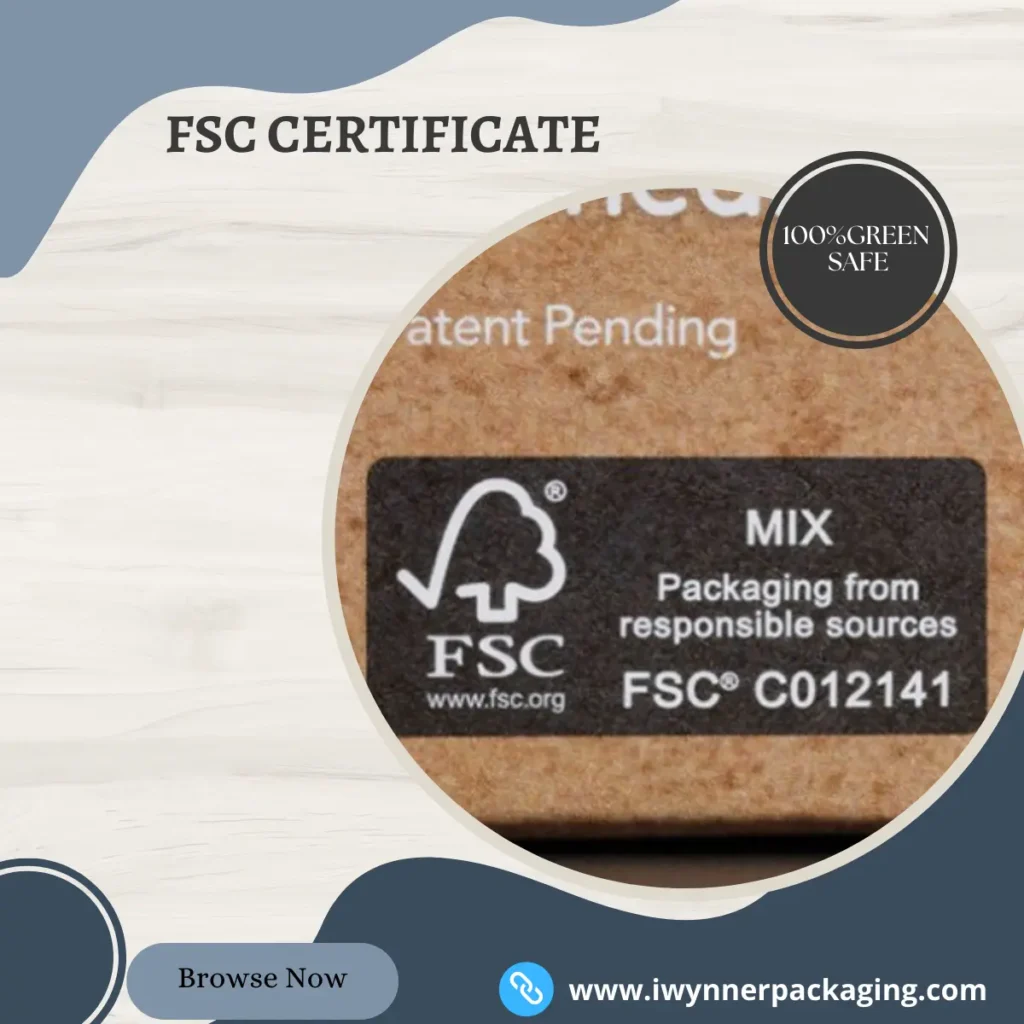
FSC Chain of Custody Certification
This certification confirms that supply chain members have correctly classified and identified materials in FSC-certified forests throughout the supply chain. This verification ensures that sustainably sourced materials reach their destination and become the intended end product.
Distinguish FSC labels
FSC 100%
Only materials from FSC-certified forests are used in products bearing this label. These products are guaranteed to support socially and environmentally responsible forest management.
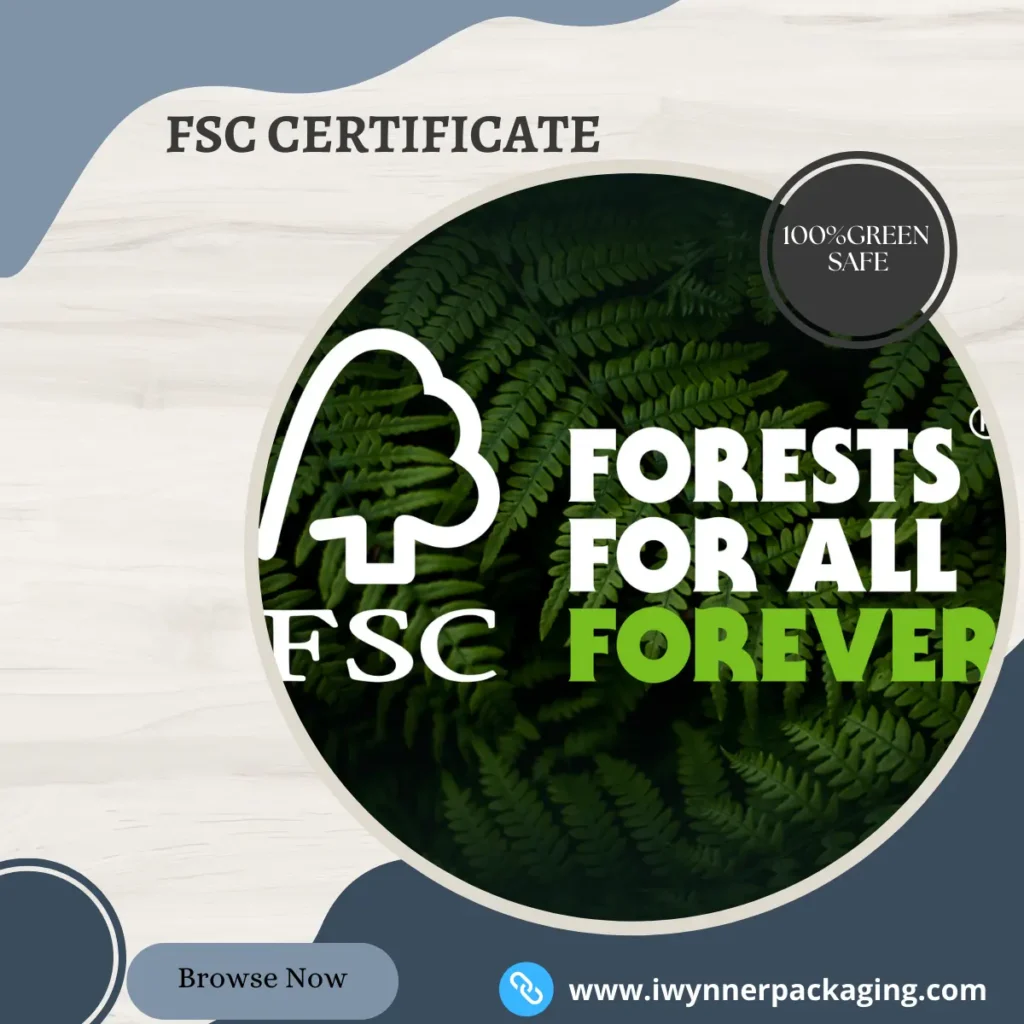
FSC Recycled
products are made with 100 percent recycled content. This includes post-consumer and pre-consumer recycled materials. Recycled materials conserve forest resources and keep habitats clear of virgin wood.
FSC Blend
Products with this label consist of a blend of FSC-certified, recycled and/or FSC-controlled wood-based materials. This certification helps reduce the risk of wood from unacceptable sources, such as illegal logging, entering the market.
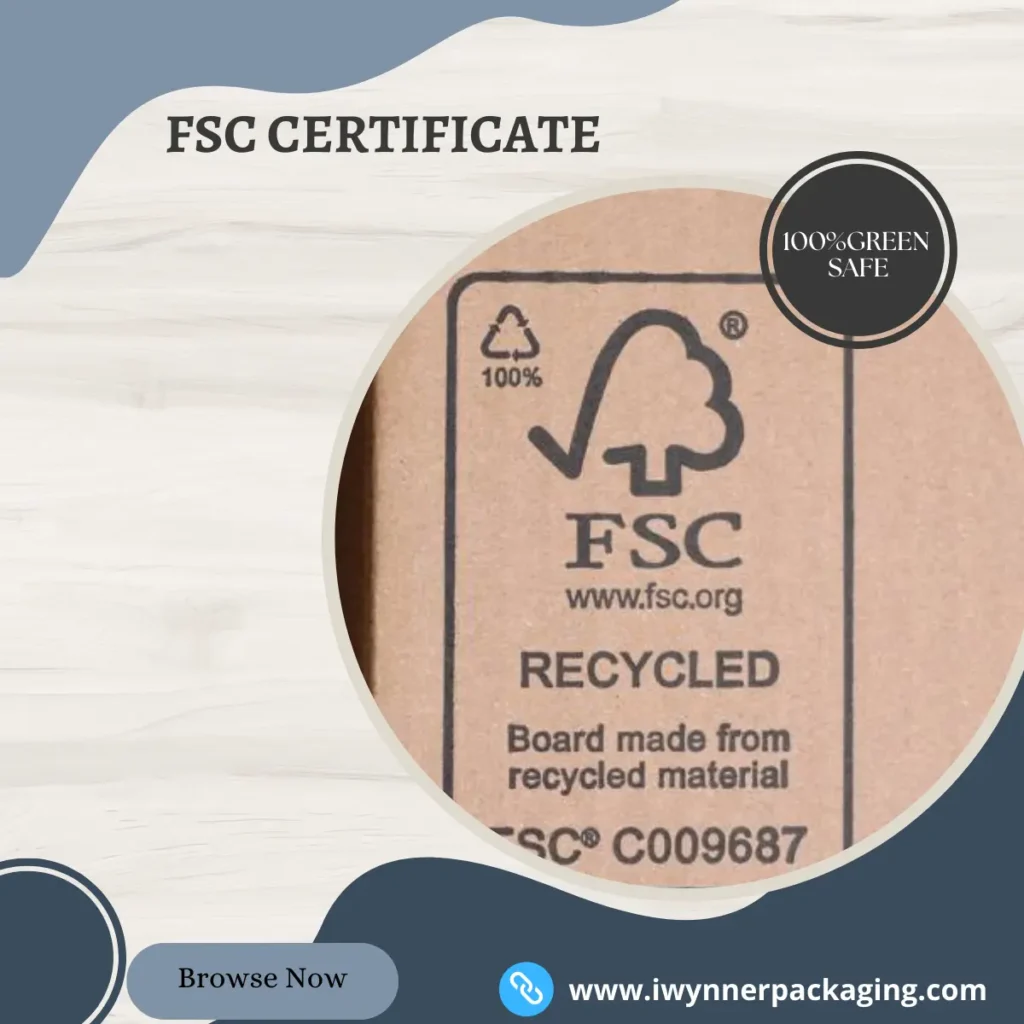
Certification Process
The FSC uses the latest technology to advance its mission. It uses satellites for Earth observation, blockchain, and digital audit reports to enhance the certification and certification maintenance process.
It also works to identify and support sustainable tree/wood product-based supply chains. Transaction validation, wood identification and sample testing are all used to increase supply chain transparency and ensure authenticity.
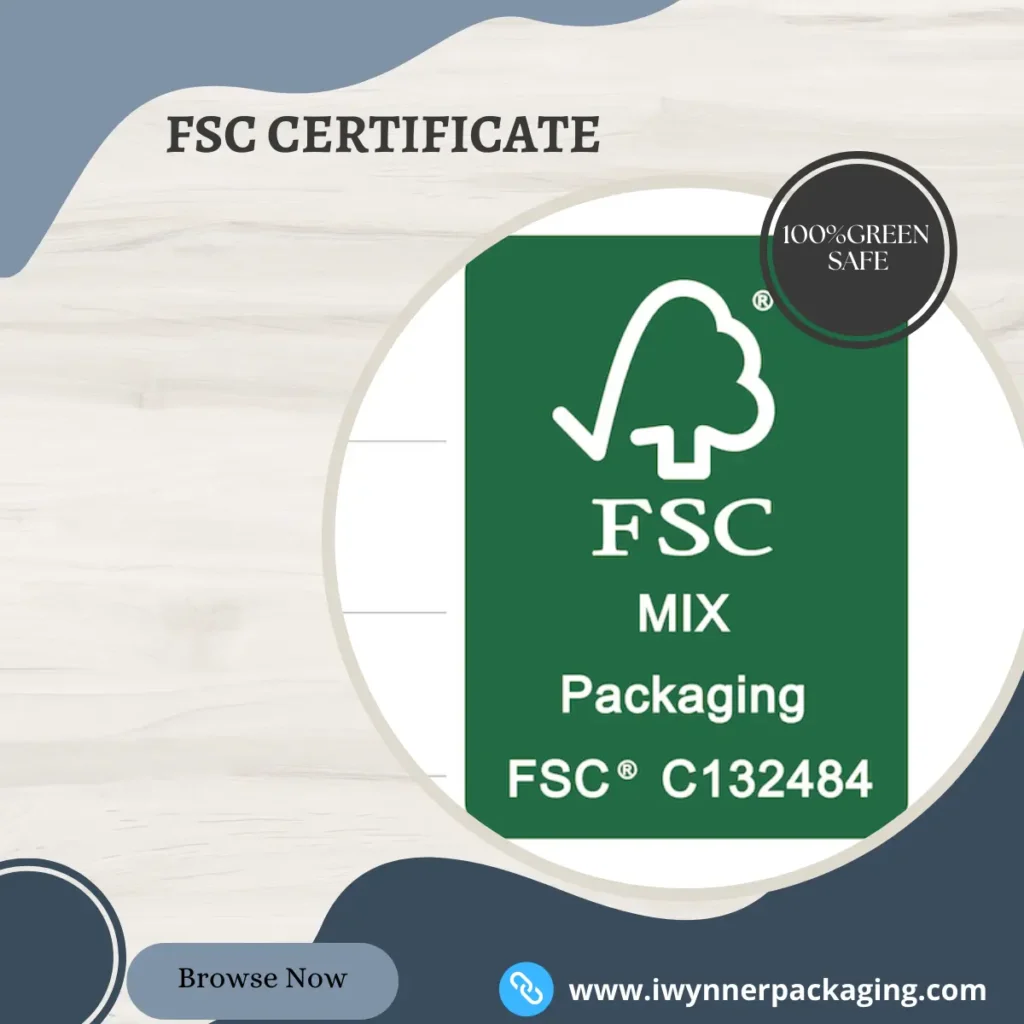
FSC-certified packaging is perfect for your business
Sustainability can be demonstrated by using FSC-certified paper and packaging. Businesses should support FSC’s mission of responsible forest management in light of climate change and rapid deforestation. Furthermore, FSC certification affects the public perception of your company. To demonstrate your commitment to sustainability, consider using FSC-certified paper and packaging solutions. Packaging materials are often difficult to determine if they are 100% FSC certified. You may not see FSC labels on all the materials you use because the supply chain is long and complex, and non-FSC-certified materials can slip in. By working with a packaging specialist, you can ensure that your packaging is FSC-certified because they can work with suppliers on this.
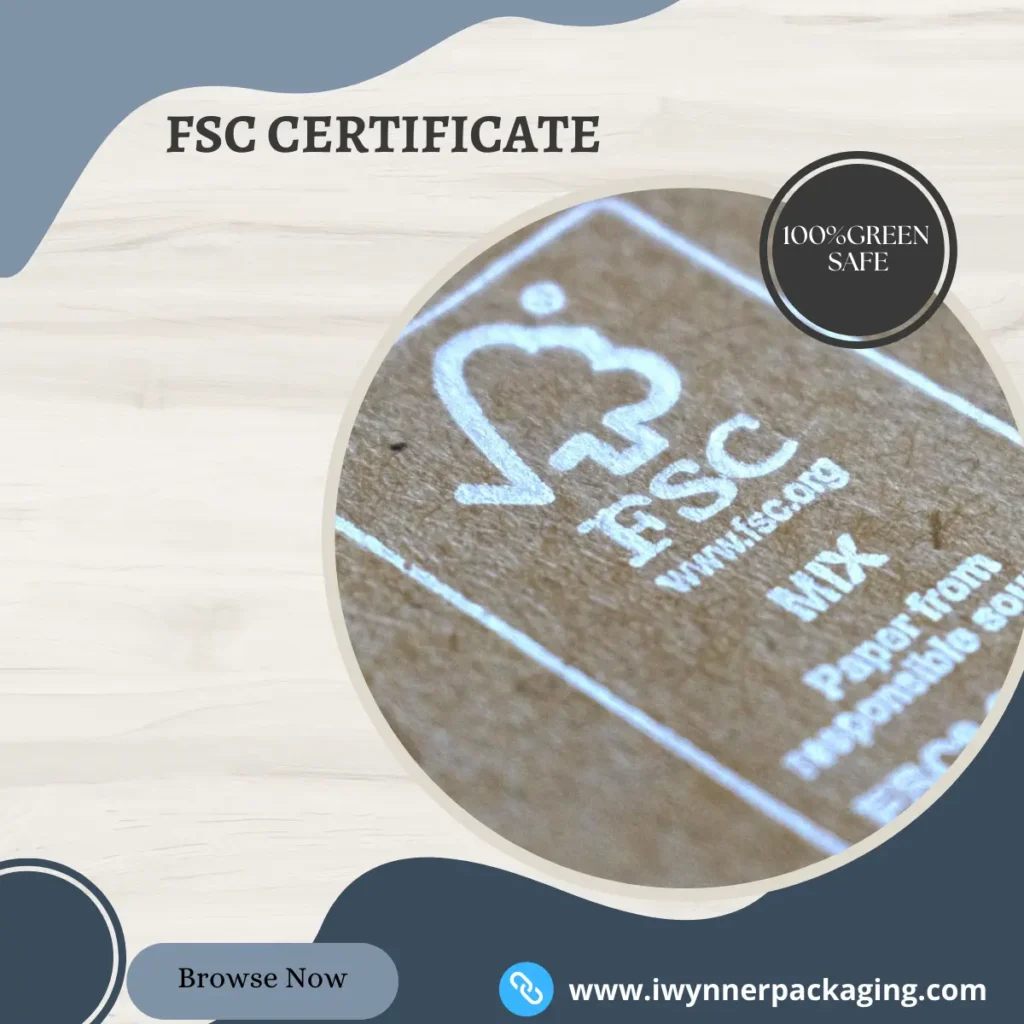
Conclusion.
It is difficult for brands to measure sustainability. Each company has its own set of goals, and priorities vary greatly from industry to industry.
Even companies striving to reduce their environmental impact may have difficulty communicating these advances to their customers.
We have strict requirements for packaging materials, which are all FSC certified by SGS, and can provide you with first-class packaging. For further information please click here. our expert will help you.


